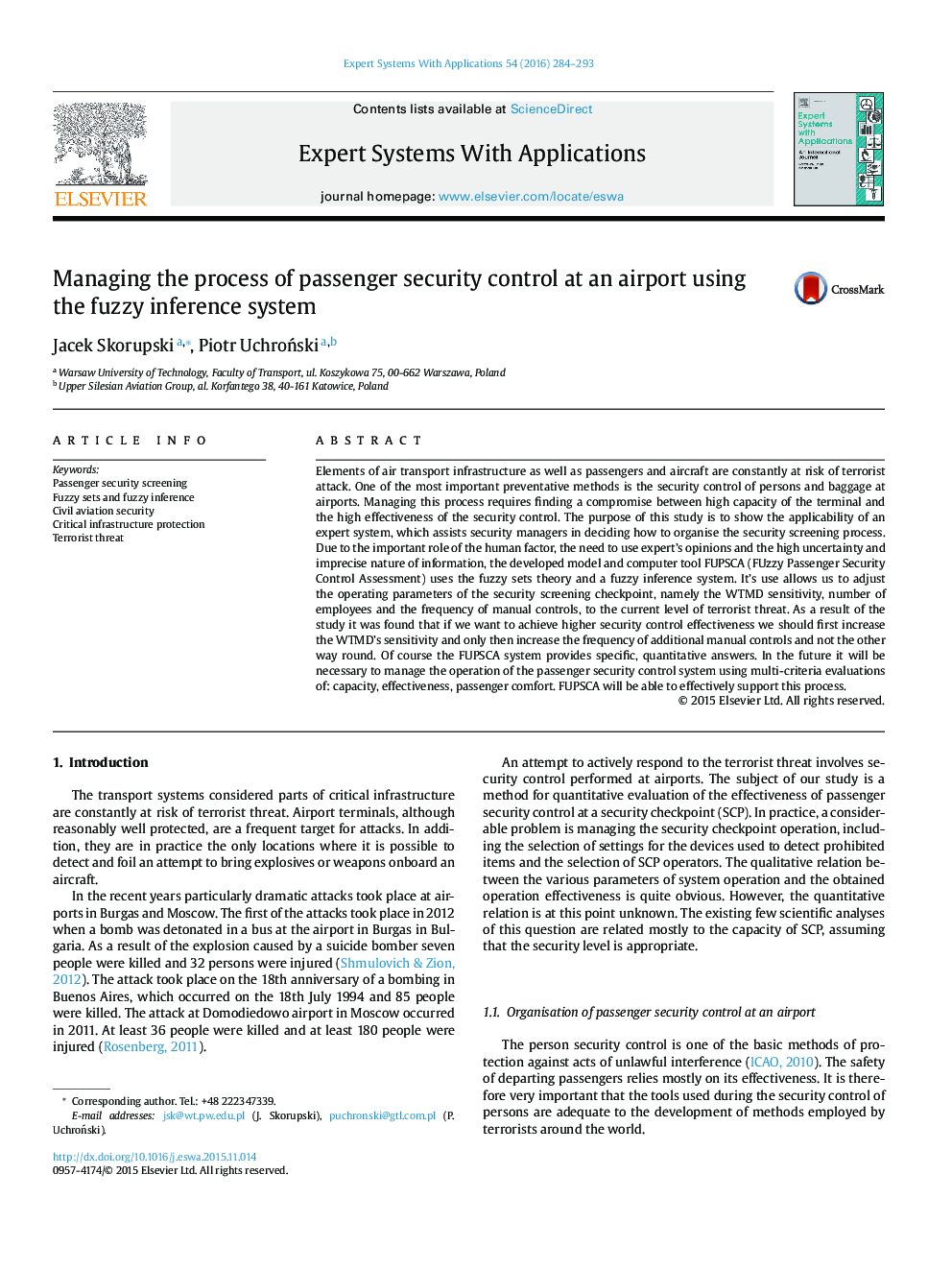| Article ID | Journal | Published Year | Pages | File Type |
|---|---|---|---|---|
| 383273 | Expert Systems with Applications | 2016 | 10 Pages |
•A model for assessment of passenger security control efficiency was created.•Human factor and the technical factor were taken into account collectively.•Hierarchical fuzzy inference system was used and implemented.•Passenger security control efficiency was determined in real conditions.•Method and software for airport management support was developed.
Elements of air transport infrastructure as well as passengers and aircraft are constantly at risk of terrorist attack. One of the most important preventative methods is the security control of persons and baggage at airports. Managing this process requires finding a compromise between high capacity of the terminal and the high effectiveness of the security control. The purpose of this study is to show the applicability of an expert system, which assists security managers in deciding how to organise the security screening process. Due to the important role of the human factor, the need to use expert's opinions and the high uncertainty and imprecise nature of information, the developed model and computer tool FUPSCA (FUzzy Passenger Security Control Assessment) uses the fuzzy sets theory and a fuzzy inference system. It's use allows us to adjust the operating parameters of the security screening checkpoint, namely the WTMD sensitivity, number of employees and the frequency of manual controls, to the current level of terrorist threat. As a result of the study it was found that if we want to achieve higher security control effectiveness we should first increase the WTMD's sensitivity and only then increase the frequency of additional manual controls and not the other way round. Of course the FUPSCA system provides specific, quantitative answers. In the future it will be necessary to manage the operation of the passenger security control system using multi-criteria evaluations of: capacity, effectiveness, passenger comfort. FUPSCA will be able to effectively support this process.
